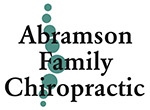Mobilization Therapy Helps Low Back Pain Patients
Among a group of 39 patients with low back pain, researchers found that mobilization therapy is an effective treatment for reducing pain and improving motor function. Doctors of chiropractic are trained in the use of mobilization and other manual therapies in the management of several musculoskeletal disorders, including low back pain. Journal of Physical Therapy Science, November 2024
Most Emergency Rooms Not Fully Equipped to Treat Kids
A review of data collected from 757 emergency departments found that nearly 80% lacked essential equipment and training to address emergencies in pediatric patients. The authors note that an investment of $260 million could significantly improve pediatric emergency room readiness, potentially saving thousands of lives each year. Health Affairs, October 2024
Heart Health Guidelines on Saturated Fat Need Updating
An article recently published in the journal Nutrients criticizes the findings of seminal studies from the 1950s that linked saturated fat to heart disease, which served as the basis for nutrition guidelines still in use today. Instead, the authors advocate for the formulation of new guidelines based on current research, especially on the negative effects on heart health linked to the intake of trans-fats and processed vegetable oils. Nutrients, May 2024
Aerobic Exercise Helps Prevent Chemotherapy Brain Fog
“Chemo brain” refers to thinking and memory problems caused by an inflammatory response in the body to chemotherapy treatment. In a recent experiment, researchers observed that engaging in aerobic exercise during chemotherapy treatment helped breast cancer patients maintain their cognitive functions and quality of life at a level higher than breast cancer patients who did not exercise. Cancer, October 2024
Music Can Help Dementia Sufferers
Listening to familiar music can activate areas in the brain involved in memory, emotion, and movement, which may help to improve the mood and wellbeing of older adults with dementia. The Conversation, October 2024
Less Than 1% of Adults Get Lipoprotein(a) Levels Checked
Lipoprotein(a) is form of lipoprotein that’s linked to an elevated risk for cardiovascular disease. While roughly 20% of the adult population in the United States has elevate lipoprotein(a) levels, a recent study found that among a sample of more than 250,000 adults, less than 1% had their levels tested within a one-year time frame. American Journal of Preventative Cardiology, October 2024
“We are what we pretend to be, so we must be careful what we pretend to be.” ~ Kurt Vonnegut
This information should not be substituted for medical or chiropractic advice. Any and all health care concerns, decisions, and actions must be done through the advice and counsel of a health care professional who is familiar with your updated medical history.
